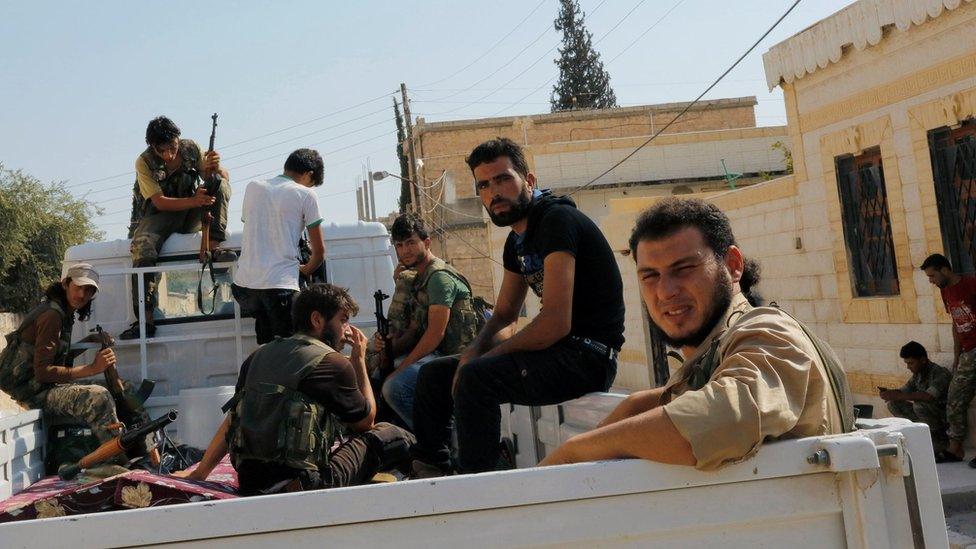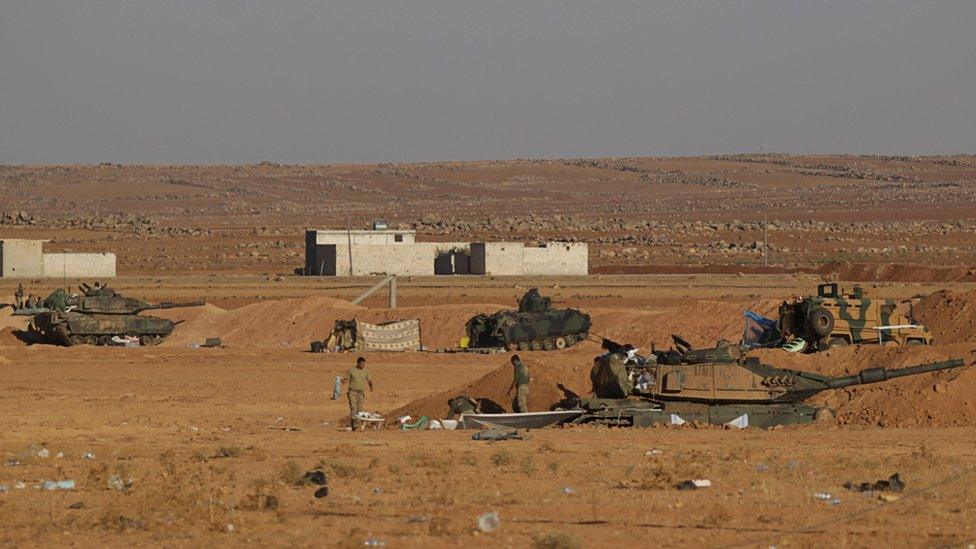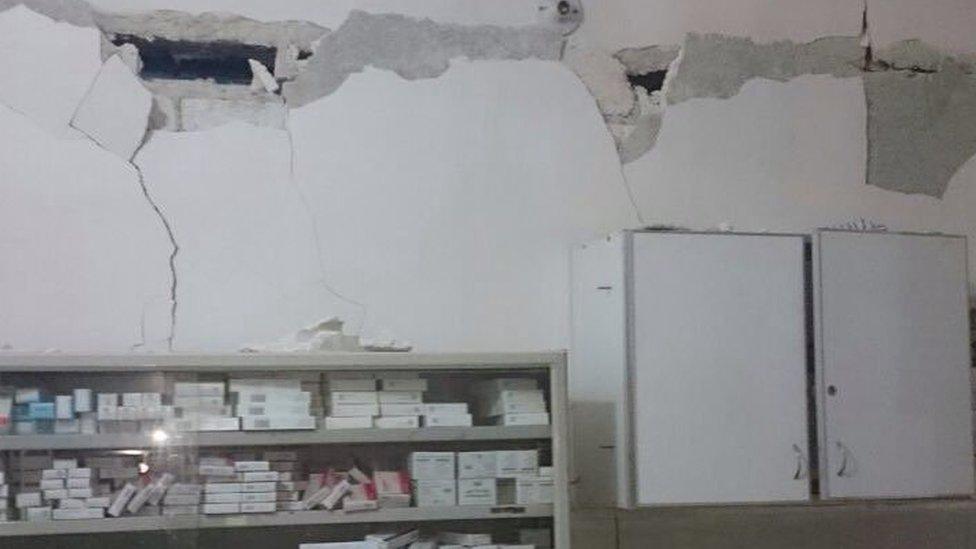Syrian rebels advance on symbolic IS-held town of Dabiq
- Published

The Turkish-backed Syrian rebel force captured the border town of Jarablus at the end of August
At least 15 Turkish-backed Syrian rebels have been killed in clashes with Islamic State militants, as they move on the group's stronghold of Dabiq.
A monitoring group reported that the rebels were killed by landmines that exploded while they attempted to secure the village of Turkman Barih.
One rebel commander said he expected to reach Dabiq, which is about 5km (3 miles) to the west, within 48 hours.
Dabiq holds great symbolic value to IS and features heavily in its propaganda.
The small town is named in Islamic apocalyptic prophecies as the site of an end-of-times showdown between Muslims and their enemies.
An alliance of Syrian Arab rebel groups, supported by Turkish air strikes, tanks and special forces, launched an operation to drive IS militants and Syrian Kurdish fighters from an area along Turkey's border with Syria in late August.
Since then, they have captured the key towns of Jarablus and al-Rai, and taken control of some 960 sq km (370 sq miles) of territory, according to Turkey.

On Monday morning, Turkish military officials said there had been "intense" clashes south of al-Rai in the past 24 hours, which had left 15 Syrian rebels dead and 35 others wounded.
Turkish warplanes, artillery and rocket launchers meanwhile targeted dozens of IS targets, they added.
The Syrian Observatory for Human Rights, a UK-based monitoring group, put the death toll at 21 and said the rebels had been killed by landmines and booby-traps planted by IS militants near Turkman Barih before they withdrew on Sunday.

Turkish tanks are supporting the rebel advance south of the town of al-Rai
The rebels have captured other villages near Dabiq in recent days and were expecting to reach the town's outskirts within 48 hours, a commander of the Sultan Murad rebel group, Ahmed Osman, told Reuters news agency on Monday.
The US-led multinational coalition against IS was also supporting the rebels as they advanced "to within a few kilometres of [IS]'s weakening stronghold Dabiq", US special presidential envoy Brett McGurk wrote, external on Twitter on Sunday evening.
Also on Monday, Syrian government and Russian warplanes carried out more air strikes on the nearby city of Aleppo, as troops continued an all-out assault on besieged rebel-held areas, activists said.

An underground hospital in rebel-held Hama province was damaged by air strikes on Sunday
The International Union of Medical Care and Relief Organizations and the Syrian Observatory also reported that air strikes on Sunday had damaged and put out of service a key hospital in a part of Hama province controlled by the rebels.
The facility near Kfar Zeita, which is known as the "Cave Hospital" because it is built inside a mountain, was probably hit by "bunker-buster missiles", the hospital's director Dr Abdallah Darwish said, external.
The strikes came a day after the main trauma hospital in rebel-held Aleppo was put out of service after being hit for the second time in a week, activists said.